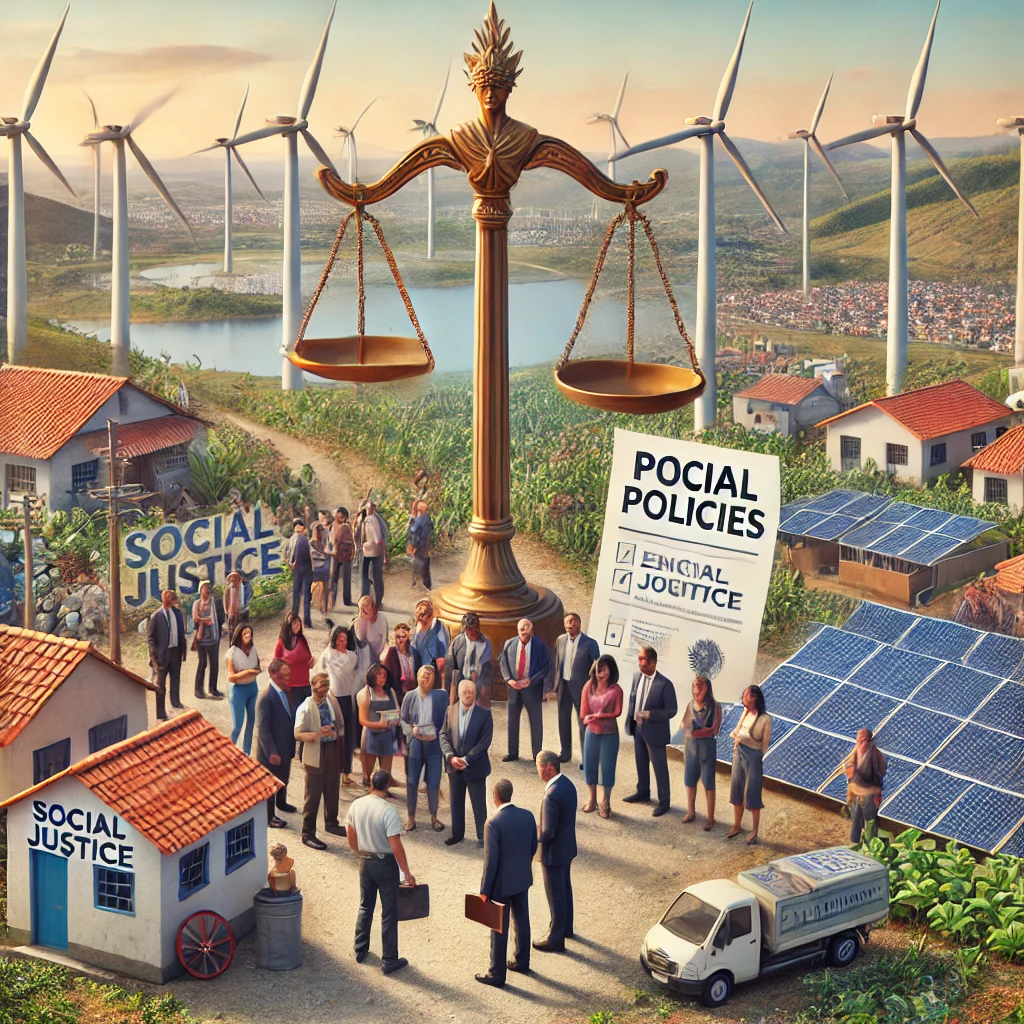
The energy transition, driven by the need to reduce greenhouse gas emissions and combat climate change, plays a central role in global sustainable development. No brazil, country that has an energy matrix that is already predominantly renewable, the advancement of this transition is inevitable and necessary. However, the social impacts of this process are profound and unequal, affecting vulnerable populations most heavily. Ensuring that the energy transition is fair requires the implementation of public policies that promote social and regional inclusion, avoiding the worsening of existing inequalities. In this context, the role of the State becomes essential to ensure that access to clean energy is equitable and beneficial for all social groups.
The energy transition could worsen regional inequalities in Brazil, especially between urban and rural areas and between different regions of the country. The North and Northeast regions, for example, still face challenges in terms of infrastructure and regular access to energy. The expansion of renewable energies, such as solar and wind, could greatly benefit these regions, where natural conditions for these sources are favorable. However, without effective public policies, the expansion of these energies could result in a concentration of benefits for large companies and private capital, without generating significant positive impacts on local communities. It is necessary for the State to promote incentives for the inclusion of these regions in the renewable energy value chain, ensuring that job creation and economic development are distributed equitably.
Another central aspect of social justice in the energy transition is the impact on workers in traditional sectors, like the fossil fuel industry. No brazil, oil and gas production represents an important part of the economy, especially in states like Rio de Janeiro. The decarbonization of the economy and the eventual reduction of dependence on these fuels could result in unemployment and loss of income for workers who depend on this industry. Public fair transition policies are essential to requalify these workers, offering them opportunities in clean energy sectors. Besides that, The creation of new jobs in the renewable energy sector needs to be accompanied by investments in education and training, in order to prepare the local workforce to fill these vacancies. Without this support from the State, labor inequalities may increase, further harming already vulnerable communities.
The energy transition also has direct implications for the cost of energy, which disproportionately affects low-income populations. If the transition to renewable sources is not accompanied by an inclusive tariff policy, the increase in the cost of clean technologies may impact access to energy for poorer groups, who already face difficulties in paying their electricity bills. Brazil has a history of subsidies for fossil fuels, like cooking gas, which benefits the most vulnerable sections of the population. However, as the country transitions to a low-carbon economy, It is essential that the government creates mechanisms that guarantee access to clean and cheap energy for these populations. This could include subsidy programs for the installation of solar panels in low-income homes or financing more efficient technologies that reduce energy consumption in the lower classes..
Besides that, there is an issue of access to technology. Distributed energy generation, especially solar, offers an opportunity for Brazilians to generate their own electricity, reducing dependence on large utilities and promoting the democratization of access to energy. However, This opportunity is often beyond the reach of the poorest populations, who do not have the resources to invest in photovoltaic systems. The role of the State, in that regard, It is crucial to promote affordable financing policies and subsidies so that the energy transition is not a privilege for the upper classes, but an inclusive reality. Creating programs that facilitate access to clean technologies in needy communities can be a way to ensure that these populations also benefit from the transition and are not marginalized in a more expensive and exclusionary energy system..
Lastly, public energy transition policies must be aligned with a broad vision of climate justice, that takes into account the unequal impacts of climate change on different social groups. The poorest populations, who often live in more vulnerable areas, such as urban peripheries or rural regions without adequate infrastructure, are those that suffer most from the effects of extreme weather events, like floods and droughts, which may be exacerbated by climate change. The energy transition offers an opportunity to mitigate these impacts, by reducing emissions and promoting a more resilient economy, but this will only be possible if there is an inclusive approach that prioritizes the needs of the most vulnerable communities.
In short, The energy transition in Brazil needs to be conducted in a way that ensures that its benefits are distributed fairly among all layers of society. The role of public policies is fundamental to prevent this transition from widening existing regional and social inequalities. Invest in technological modernization, retrain workers, Subsidizing access to clean energy and developing infrastructure in vulnerable areas are necessary actions so that Brazil can move towards a more sustainable energy future without leaving the most vulnerable populations behind. The State has the duty to lead this process, ensuring that the energy transition is a tool for social inclusion, and not exclusion.
